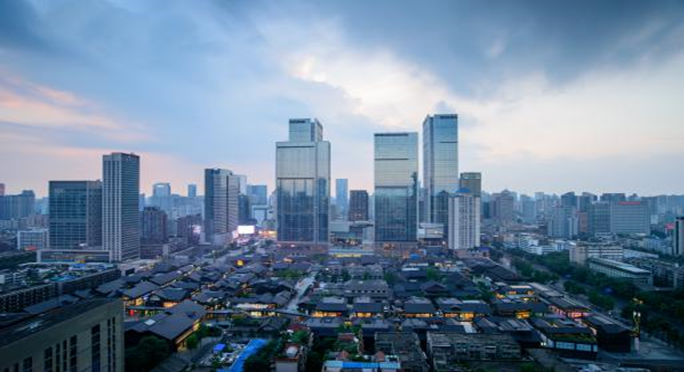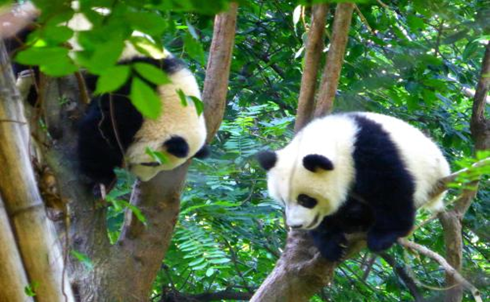Getting to Chengdu Visa To obtain a Chinese visa, please refer to your nearest Chinese Embassy/Consulate or a Chinese Visa Application Service Center (http://www.visaforchina.org). If you need an invitation letter, please write an email to us: neurotech2024@163.com | ||||||
By train | By air | |||||
Chengdu is the primary railway hub city and rail administrative center in southwestern China. There are three major passenger stations servicing Chengdu: Chengdu Railway Station (commonly referred to as the "North Station"), Chengdu South Railway Station (ChengduNan) and Chengdu East Railway Station (ChengduDong). | Chengdu has two airports: Shuangliu International Airport (IATA: CTU) / Tianfu International Airport (IATA: TFU). | |||||
Moving in city By car or by subway There is an efficient subway system (now 12 lines) in Chengdu, so you can take a subway to almost everywhere you like. Also, the road is well organized which allows you to move in this city by car. By bicycle or by feet There are many scenic spots in Chengdu, some of which are not far from each other. Therefore, you can just walk among them or rent a shared bicycle to take a visit. Public transports Bus transit is the most important mode of public transport in Chengdu. There are more than 400 bus lines in Chengdu with nearly 12,000 buses in total. A Tianfutong Card, which can be topped up to help you take a bus or subway. Also, in subway stations or Hongqiliansuo Market, you can buy one yourself. Moreover, even without it, you can simply pay by cash to take a bus or buy tickets in the subway station. | ||||||
About Chengdu | ||||||
| ||||||
Chengdu, formerly romanized as Chengtu, is a sub-provincial city which serves as the capital of Sichuan province, People's Republic of China. It is one of the three most populous cities in Western China. Chengdu is also considered a World City with a "Beta +" classification according to the Globalization and World Cities Research Network. The surrounding Chengdu Plain is also known as the "Country of Heaven“ and the "Land of Abundance". It is now one of the most important economic, financial, commercial, cultural, transportation, and communication centers in Western China. Chengdu Tianfu International Airport, a hub of Air China and Sichuan Airlines is one of the 30 busiest airports in the world, and Chengdu Railway Station is one of the six biggest in China. Chengdu also hosts many international companies and more than 12 consulates. More than 260 Fortune 500 companies have established branches in Chengdu. | ||||||
| Culture | ||||||
Home of giant panda The giant panda, a Chinese national treasure, is one of the rarest animals in the world. The total number is estimated to be 1,500, including those living in the wild, 80 percent of which are in Sichuan Province. A breeding center for giant pandas called Chengdu Research Base of Giant Panda Breeding was founded in the north suburbs of Chengdu. It is the only one of its kind in the world that's located in a metropolitan area. In order to better protect wild giant pandas, Chengdu has established nature reserves in Dujiangyan City, Chongzhou City, and Dayi County. Sichuan Wolong Giant Panda Nature Reserve, the biggest of its kind in the world, is only 130 km (81 mi) outside Chengdu. After the Wenchuan earthquake, most of it was moved to Ya'an. |
| |||||
Literature Some of China's most important literature comes from Chengdu. The city has been home to literary giants, such as Sima Xiangru and Yang Xiong, two masters of Hanfu, a mixture of descriptive prose and verse during the Han dynasty; Li Bai and Su Shi, the most eminent poets of the Tang and Song dynasties respectively; Yang Shen'an, a famous scholar of the Ming dynasty; and Guo Moruo and Ba Jin, two well-known modern writers. Chang Qu, a historian of Chengdu during the Jin dynasty, compiled the earliest local historical records, the Record of Hua Yang State. Zhao Chongzuo, a poet in Chengdu during the Later Shu Kingdom, edited Among the Flowers, the first anthology of Ci in China's history. | ||||||
Education Chengdu is home to the greatest number of universities and research institutes in Southwestern China. It has 49 colleges and universities, including University of Electronic Science and Technology of China, Sichuan University, etc. | ||||||
Theatre | ||||||
Culinary art and tea culture | ||||||
Hot pot Hot pot is a traditional Sichuanese food, made by putting vegetables, fish, or meat into a specially-made spiced soup. Chengdu residents eat hot pot often, sometimes inviting friends to go with them to one of the many hot pot restaurants that are widely-distributed throughout Chengdu. Hot pot is a typical part of Chengdu residents' daily diet. |
| |||||


